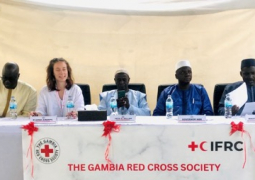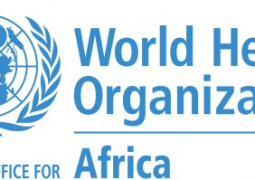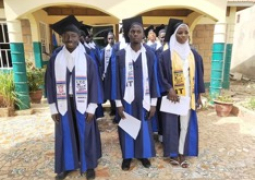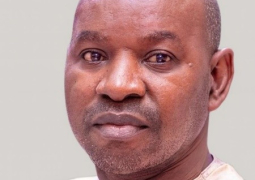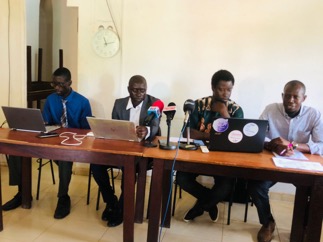
launch of the project dubbed 'innovate to combat emigration’was held at the school’s Fajara premises on Tuesday.
The project seeks to address the root causes of migration, unemployment, poverty, thereby promoting innovation, entrepreneurship and citizen’s participation in decision making processes.
At the event, Sang Mendy, managing Director of MAJaC, who doubles as the project manager, said the project is a mini grant that seeks to equip MAJaC and partners.
"The Gambia media supports a daily space media development organisation with relevant information, understanding on insight of what is needed in terms of media and its related field to help curb migration."
Mendy highlighted that the three months project would run from July to September and would consist of several meetings with relevant stakeholders and organisations involved in the fight to combat irregular migration.
The whole idea, he added, would be geared towards harvesting ideas, action points and proposals on how to combat migration through training.
"My institution as a journalism institute believes that we have a greater role to play to combat irregular migration and to engage stakeholders harvest ideas and relevant information they can put together to put up convincing proposals that would play its part in national development. Also, we are on this fact-finding mission to tap ideas and collect information to enable them apply for funding that will build the capacity of young people in areas of skill works and conquer the push factor of irregular migration."
He observed that prior to the change of government, The Gambia was among the countries with the biggest pool of migration despite its population and is still among the countries that continue to struggle with migration.
“Migration is a development and both departing and receiving countries are fighting hard to tackle. The 2030 Sustainable Development Agenda recognises that migration is a powerful driver for sustainable development."
MD Mendy observed that when migration is poorly managed, it can also negatively impact on development.
Alhagie S.Cham, programme officer at The Association of Non-Governmental Organizations in the Gambia (TANGO) on behalf of the executive director, reminded that migration is a widespread phenomenon which is impossible to fully quantify.
He, however, noted that its amplitude is evident given that the International Organization for Migration (IOM) serves the need over 281 million migrants worldwide of which 10 to 12% were undocumented or in an irregular situation.
The challenges of managing migration, he believes, has grown dramatically over the past few decades as more and more people are driven out of their homes by diverse economic, political, social and environmental factors of which economic factors is indicated as the primary motivating factor.
"Migration has the potential to bring positive socio-economic outcomes for both society and migrants."
Also speaking, Modou S. Joof, Secretary General of The Gambia Press Union, said it is known that migration is human right, but irregular migration becomes a problem when a life is put at risk.
Joof recalled that over the years a lot of Gambians especially youth have lost their lives in the process.
"It is important for Gambians to build coalition in order to bring together Civil Society Organisations and relevant stakeholders to brainstorm on how to combat irregular migration."


